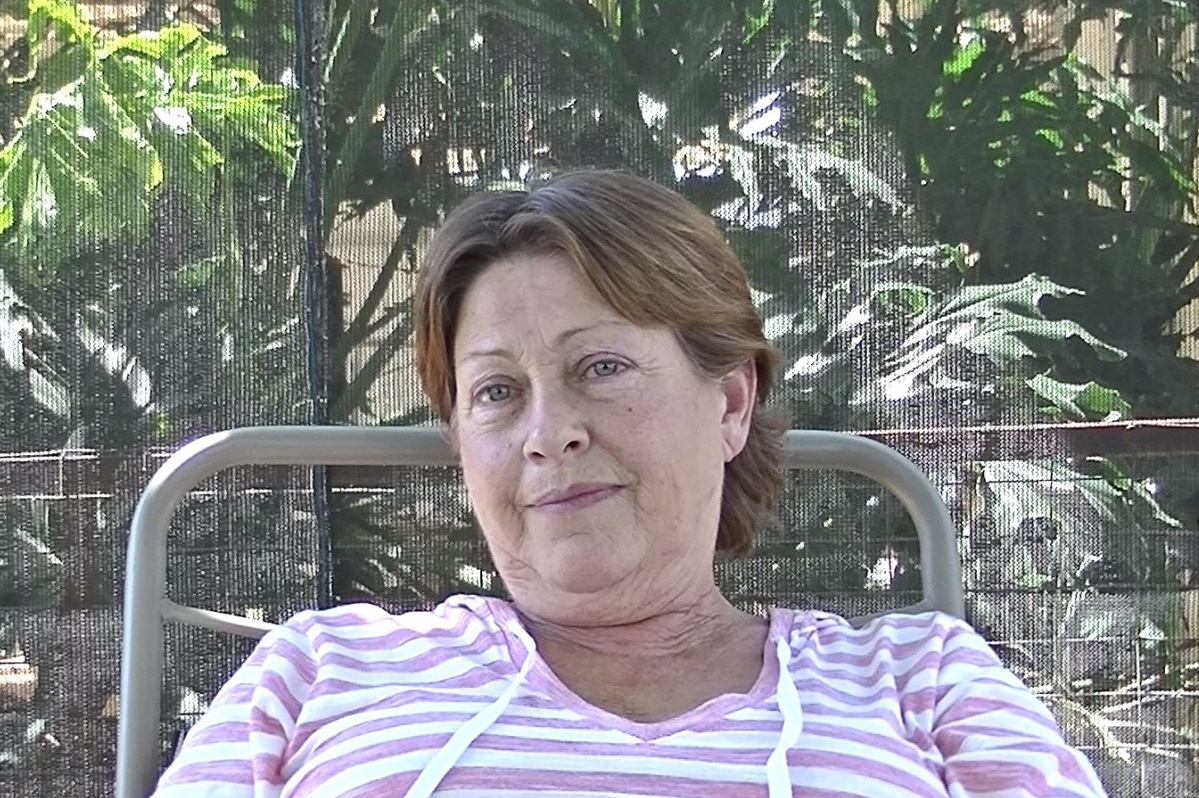
Name: Christene
Age at interview: 57
Gender: Female
Background: Christene lives with her husband and three grandchildren (aged seven, nine and 12) in a regional town in Victoria. She was born in Australia and has an Anglo-Australian background.
About Christene
A full-time homemaker, Christene has in the past been a carer for her daughter, her grandson, granddaughter and her husband. Christene's daughter was diagnosed with borderline personality disorder when she was about 18. Two of her daughter's children, now aged nine and 12, have a range of mental health and neurological diagnoses resulting from their early childhood and neonatal experiences and are seeing a psychologist. In addition, Christene cares for her husband who is currently being treated for depression.
More about Christene
Over the past 15 years, Christene has cared for three generations of family members with mental health issues: her daughter, aged 30, her daughter's son and daughter, aged 12 and nine, and most recently her husband who is 60.
Christene first suspected something was 'wrong' when one of her daughters was about 12 after she started acting as though she was 'jealous' of her younger sister. Five years later, Christene's daughter tried to take her own life and was taken to hospital. Christene said this was the first of many suicide attempts and acts of self-harm. After her daughter ran away from the hospital where she was being treated after her suicide attempt, the police took her to the local psychiatric ward where she was admitted involuntarily for two weeks. Christene said that after her daughter was discharged, her daughter's life 'spiralled out of control' and she went from being a 'straight-A student' to leaving school and 'discovering drugs and alcohol'.
When Christene's daughter was about 18, she received a diagnosis of borderline personality disorder (BPD), which Christene said her daughter has never accepted. Christene sought information from a support organisation, which advised her how caregivers can 'survive' their loved ones' BPD because the acting psychiatrist was 'not able' to explain to her what the diagnosis meant. They also explained to Christine that early experiences of trauma could cause BPD.
Around the same time, Christene's daughter gave birth to her first child, a son, and her daughter was born three years later. Both children have received various mental health and neurological diagnoses related to their early childhood and neonatal experiences and are being treated by mental health practitioners. When her daughter was 24, Christene and her husband successfully applied to legally take over the care of her children, then six and three. She said she made the 'awful' choice to prioritise caring for her grandchildren over her daughter, whom she also loves, because she felt the children were 'being damaged' by their mother's 'out of control' lifestyle. As a result, Christene said her daughter 'hated' her and since then there has been 'very little' contact between them.
When Christene's grandson was 11, some challenging behaviours prompted Christene to seek advice from his psychiatrist, who prescribed an antidepressant. According to Christene the medication made her grandson violent and difficult to control. Following the suggestion of a paediatrician, Christene sought a prescription for antipsychotic medication. Her grandson's treating psychiatrist disagreed, but Christene told him that the antidepressants did 'not agree' with her grandson, whereas the antipsychotic medication calmed him down and kept the family 'safe'. Christene said initially her grandson did not like taking medication, even though it helped him to sleep, because it made him feel 'dopey'. But she said once she explained to him that it gave his 'brain the chemical it needs' he was 'a lot happier'. After his behaviour settled, Christene gradually stopped the medication under supervision.
Around this time, Christene's husband began experiencing depression. Christene described her husband as 'lucky' because he sought help from his GP and disclosed that he felt suicidal. His GP prescribed antidepressant medication and recommended hospitalisation. At the time of the interview, Christene's husband had been in a mental health unit for five weeks as a voluntary patient, and was about to be discharged. Christene was worried if he was left 'untreated' at home, he would end up either back in 'hospital' or in 'the morgue'. She fears that without her 'rock' she has no-one to support her, and may not be 'strong enough' to support her family both financially and emotionally.
Christene feels that the mental health system leaves carers 'to do all the hard yards'. She likened mental illness to 'a train out of control' and believes the system only provides care after the 'train crashes'. Christene feels the various psychiatrists and psychologists who treated her daughter from when she was 17 placed her in the 'too hard basket'. Yet, she does feel she can rely on her grandchildren's paediatrician and psychologist, who both convey 'empathy and real understanding'.
A friend of Christene's is another source of support. She described sitting with her friend beside the pool and daydreaming together that they were 'sitting on a beach drinking pina coladas'. Christene also said she'religiously' sets aside the first half hour each morning to read a book over a coffee. After this, she feels ready to deal with whatever life is going to 'throw' at her that day.
Christene said she has learnt through caring for family members when they are 'unwell' to 'laugh at herself', but that it had taken 'a lot of tears' to reach this point. She is determined to break her family's 'cycle' of mental health issues for the sake of the next generation's wellbeing.
